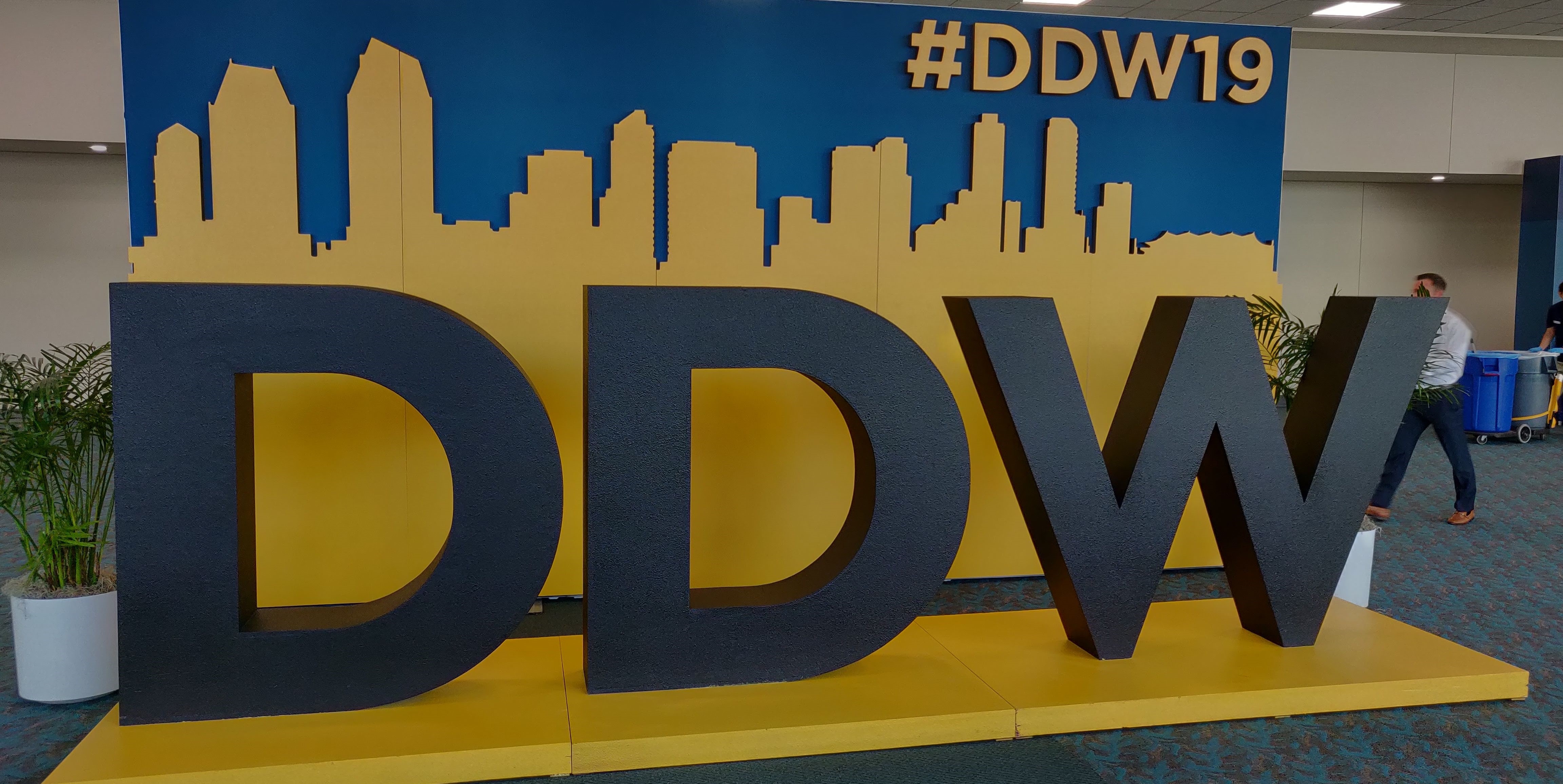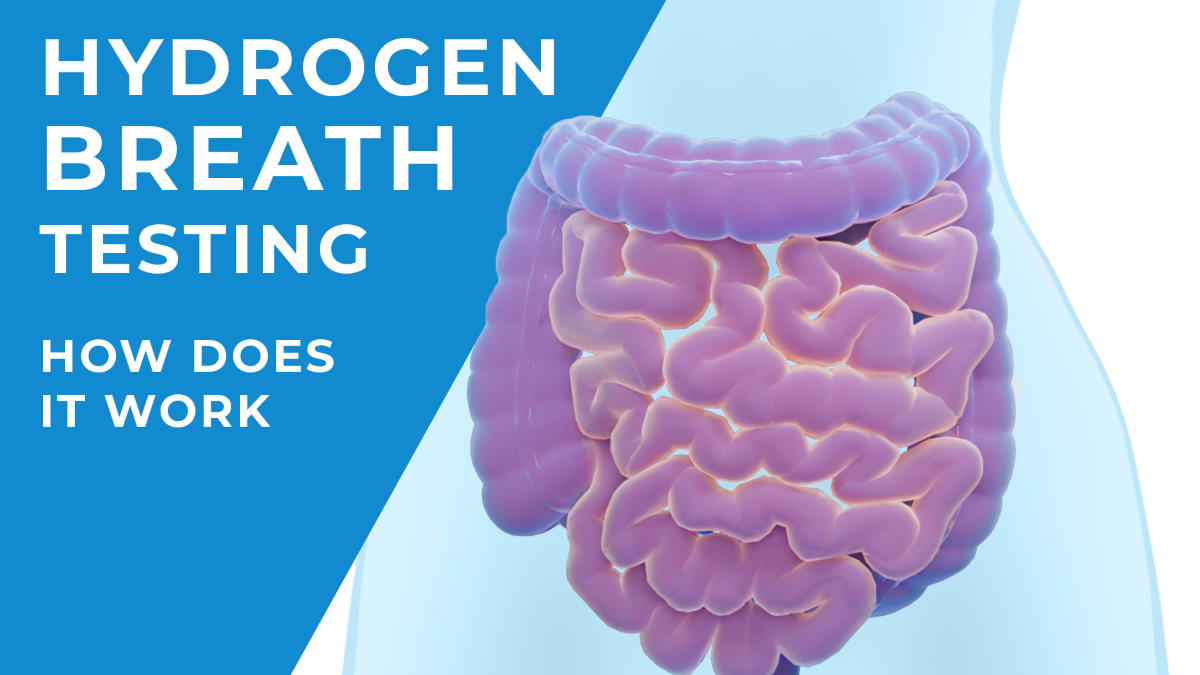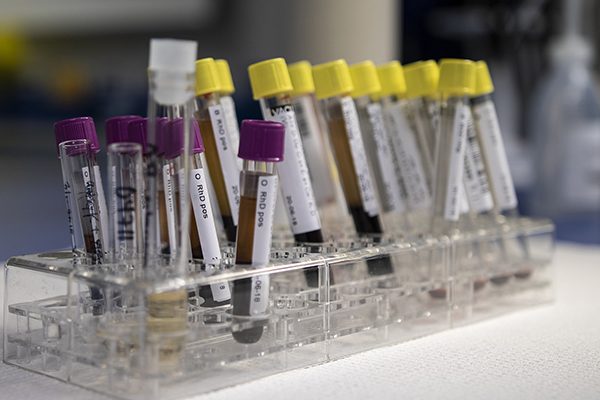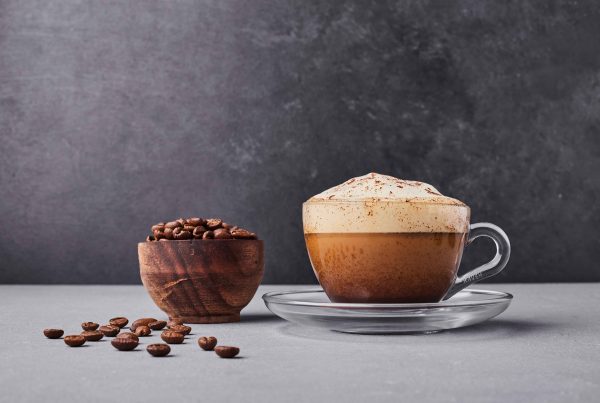This is the third in a short series of blogs outlining the exciting things we learned at the different gastroenterology conferences we attended this year! Check out the first and second blogs here. Keep an eye on our blog and our social media to catch the rest in the series!
Blog#3: Using a probiotic to reduce gut pain
Despite the number of people who have IBS, it is not very well understood. Many IBS patients have increased sensitivity to stimuli within their intestines. This seems to be a main driver in pain generation. Recurrent pain is one of the most common and debilitating symptoms of IBS. However, not knowing why and when this pain might occur can really have a negative impact on your day-to-day. Therefore finding useful and effective ways to manage pain for people with IBS is of the upmost importance.
Controlling pain with a probiotic?
At the Digestive Disease Week (DDW) this year, we attended a session by Dr Nicholas Cenac (INSERM) where he presented data looking at the use of a probiotic to control visceral pain (pain associated with the abdominal area due to the activation of nerve fibers). The probiotic was called Escherichia coli Nissle 1917 (EcN), which is commercially available as Mutaflur. Previous studies showed that this probiotic was beneficial for pain relief in IBS. However, there was limited knowledge of the exact mechanism.
Dr Cenac presented some really interesting data. He demonstrated that EcN releases a lipid mediator (a bioactive compound insoluble in water), which appears to neutralize the activated nerves. This leads to reduced pain (less activation = less pain). This appears to occur through the regulation of genes associated with pain and inflammation. Therefore, the ‘probiotic effect’ seems to occur via the release of this long chained lipid metabolite. This demonstrates that gut microbiota are able to regulate the pain response in the colon.
Looking at other studies
We were really excited by this data, so we checked to see if there were other studies looking at how this probiotic provides symptom relief in IBS. It is known that the intestinal barrier is disturbed in a sub-set of patients with IBS. This increased permeability may contribute to pain generation for these patients. One study collected biopsies from patients with IBS and were able to isolate IBS-like mediators (cause inflammation) from the biopsies. This study was performed in a lab (in vitro), using an intestinal cell line (cells originally taken from the intestine, now continuously grown in a lab environment).
To these cells, they added the IBS-like mediators, to make the intestinal cells more permeable (“leaky”). Other stimuli, also known to increase the permeability, were added to another set of intestinal cells (the positive control group to compare to the IBS mediator group).
At this point, the intestinal cells were increasingly permeable, so they wanted to see what would happen when the probiotic was added to the leaky cells. Interestingly, the presence of the probiotic restored the mucosal barrier. It’s pretty impressive that a probiotic can reinforce this vital protective barrier, but remember this study was done in vitro. We will be patiently awaiting some human clinical studies looking at its role in the restoration of the intestinal barrier.
So what’s next?
EcN may play a role in controlling pain in IBS patients through a number of mechanisms. This includes the alteration of the tight junction proteins. These proteins are what keep the intestinal epithelium stable. You can imagine them as the gate keeper, allowing only certain compounds to pass whilst preventing intruders (e.g. pathogens – “bad bacteria”)
EcN has also been shown to have an anti-inflammatory effect, which may also contribute to the reduction of pain. There were no negative effects on the intestinal epithelium or intestinal motility, which are both common side effects of strong pain medication. More research is certainly needed to look more closely at the role of this probiotic in the management of IBS-like symptoms, but we are really excited to see what comes next!
Check back shortly for another update from our conference attendance!
Podcast interview at DDW
We met with Jeffrey Roberts, founder of the IBS Patient Support Group while we were at DDW. Listen below to myself and FoodMarble CEO Aonghus chatting to him!
FoodMarble AIRE is the world’s first personal hydrogen breath tester. It is a pocket-sized breath analysis device. It helps people with chronic digestive issues determine the foods that work best with their digestive system. To learn more about AIRE, visit www.foodmarble.com





